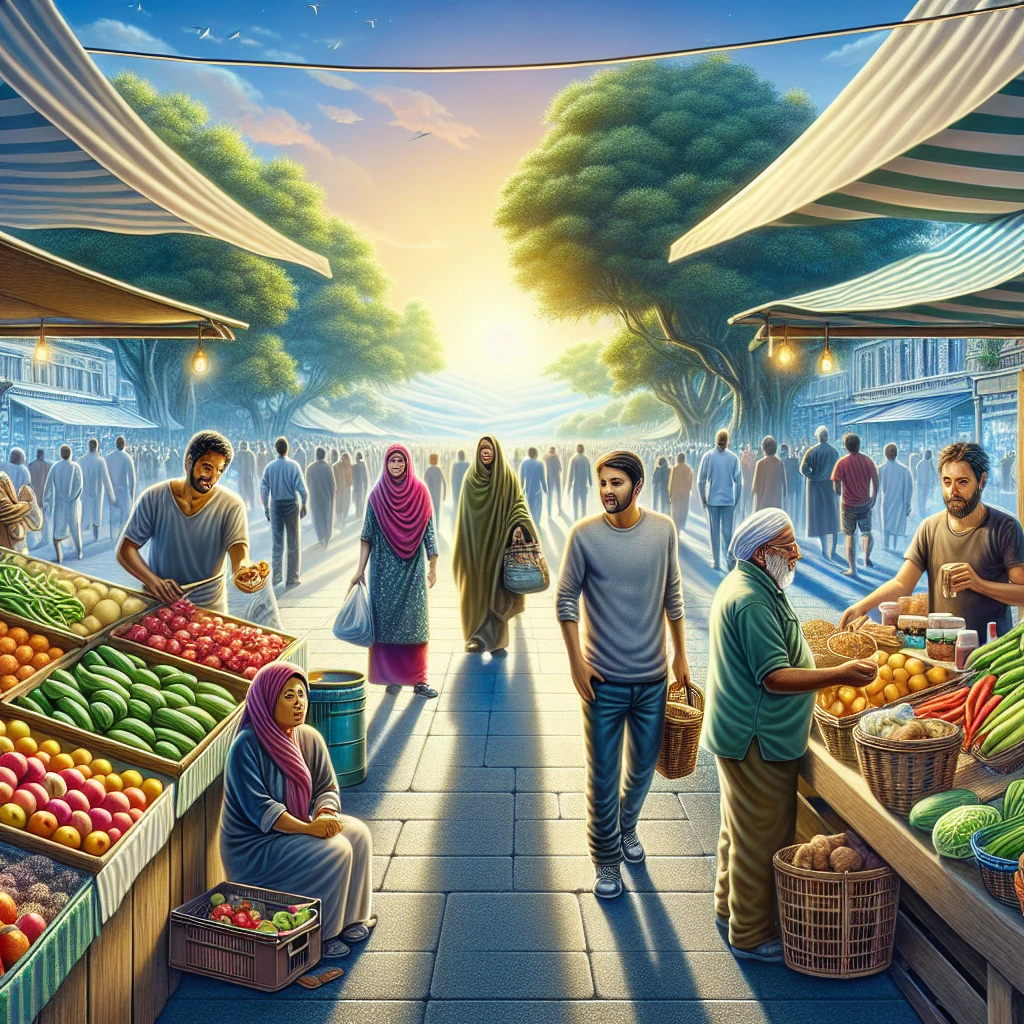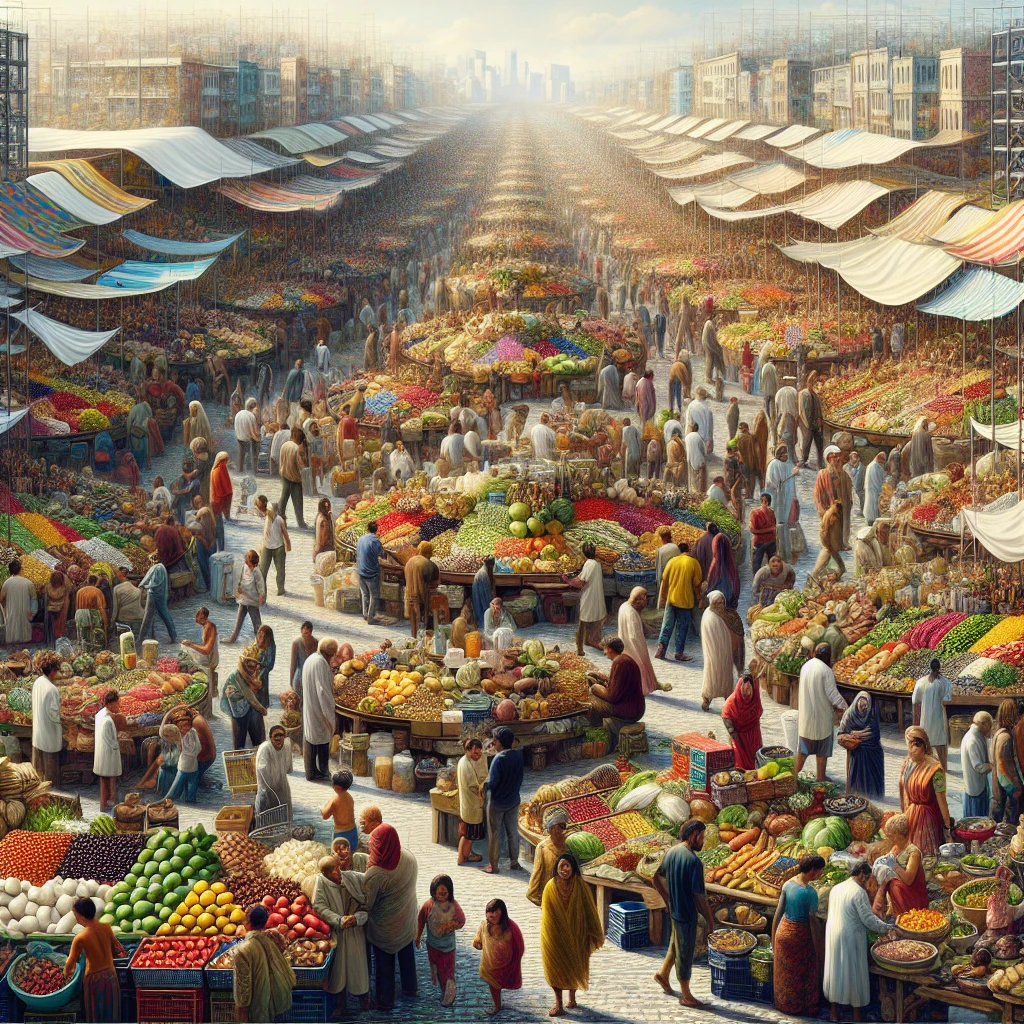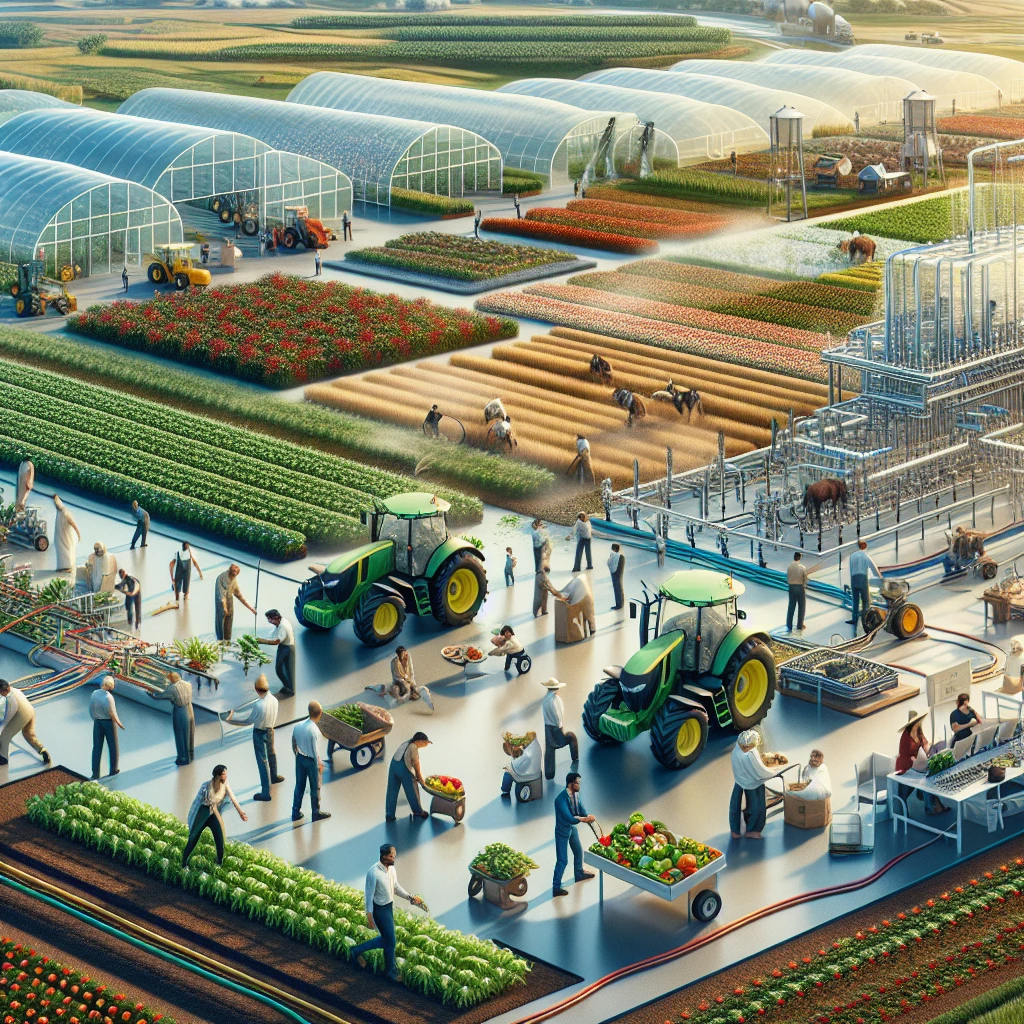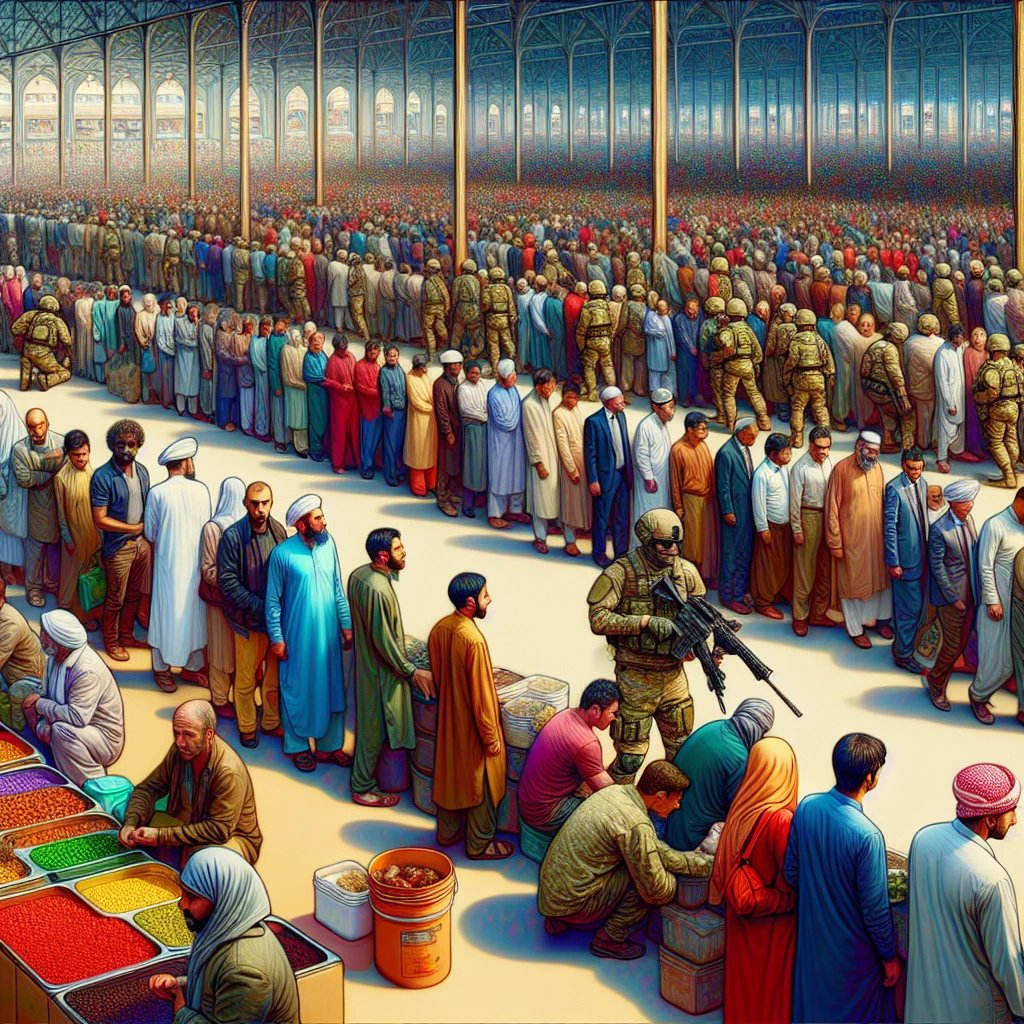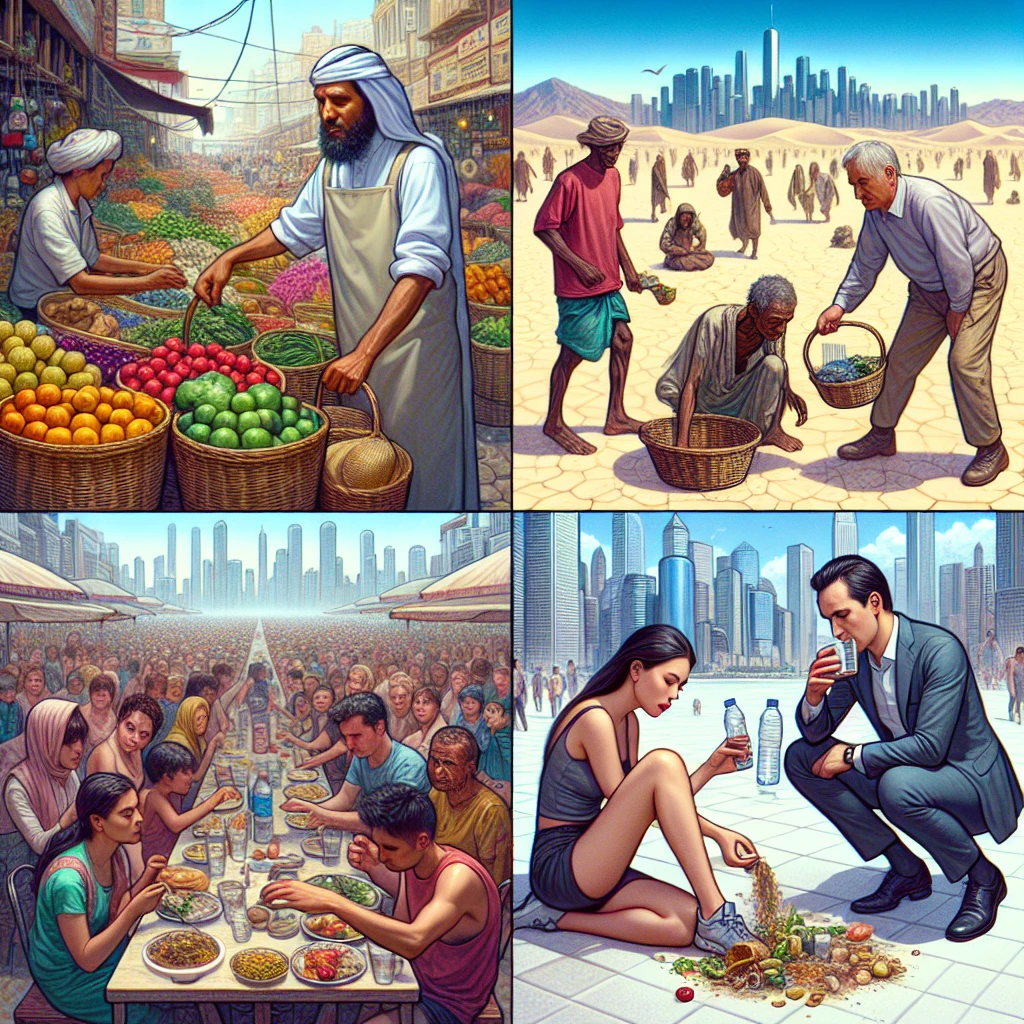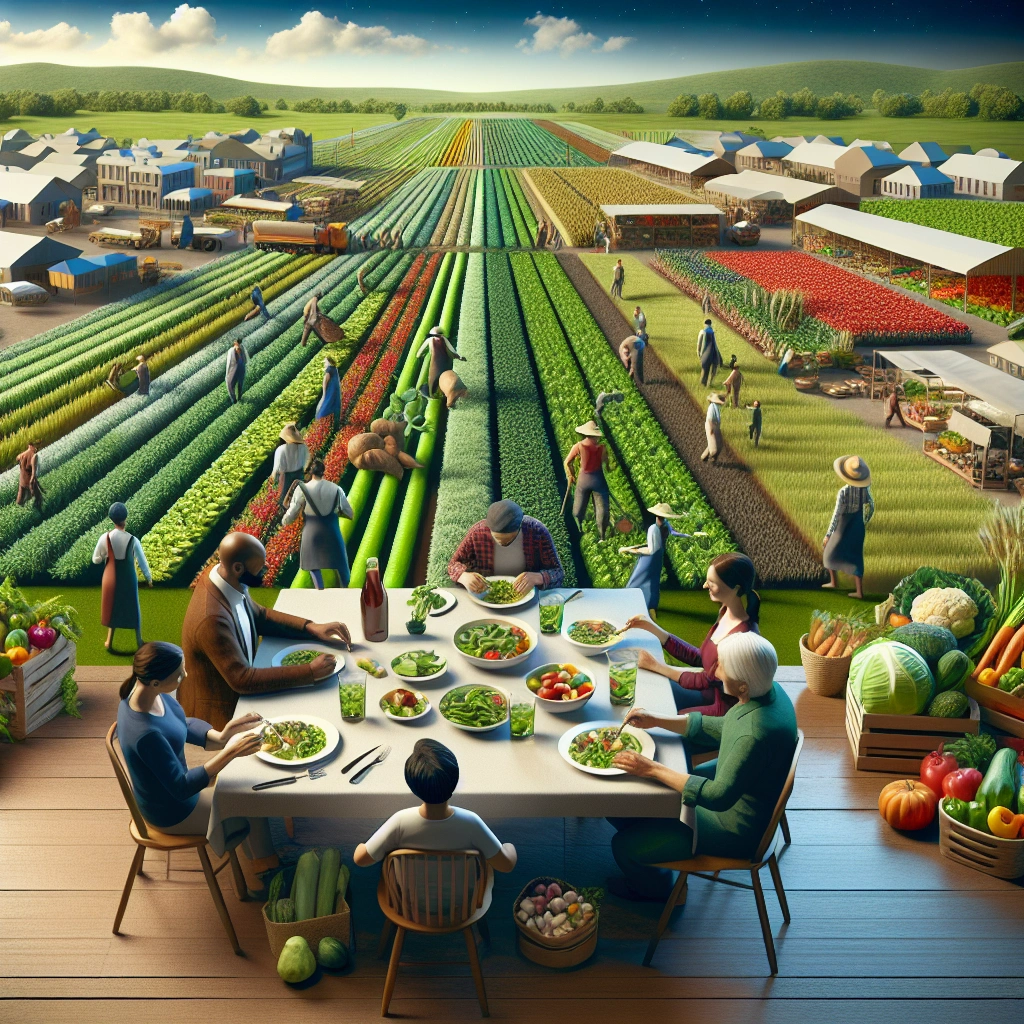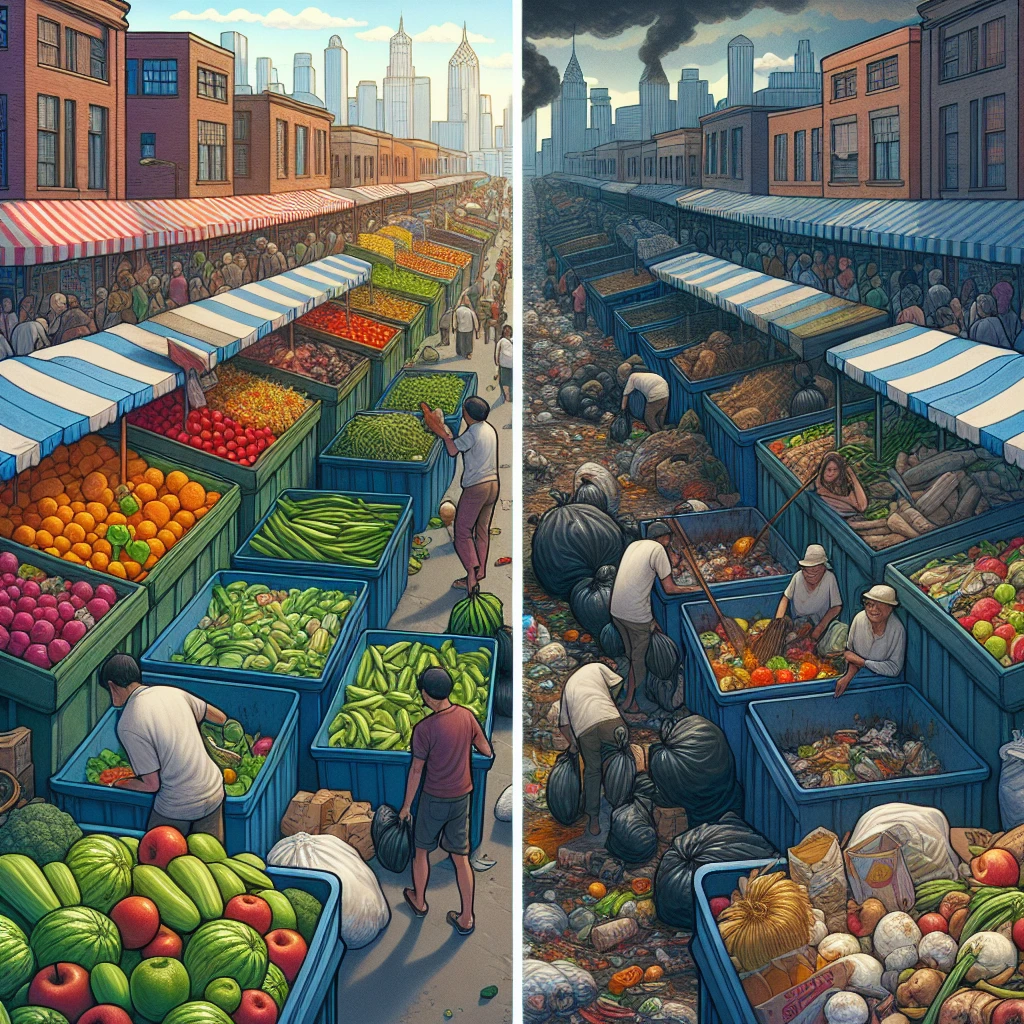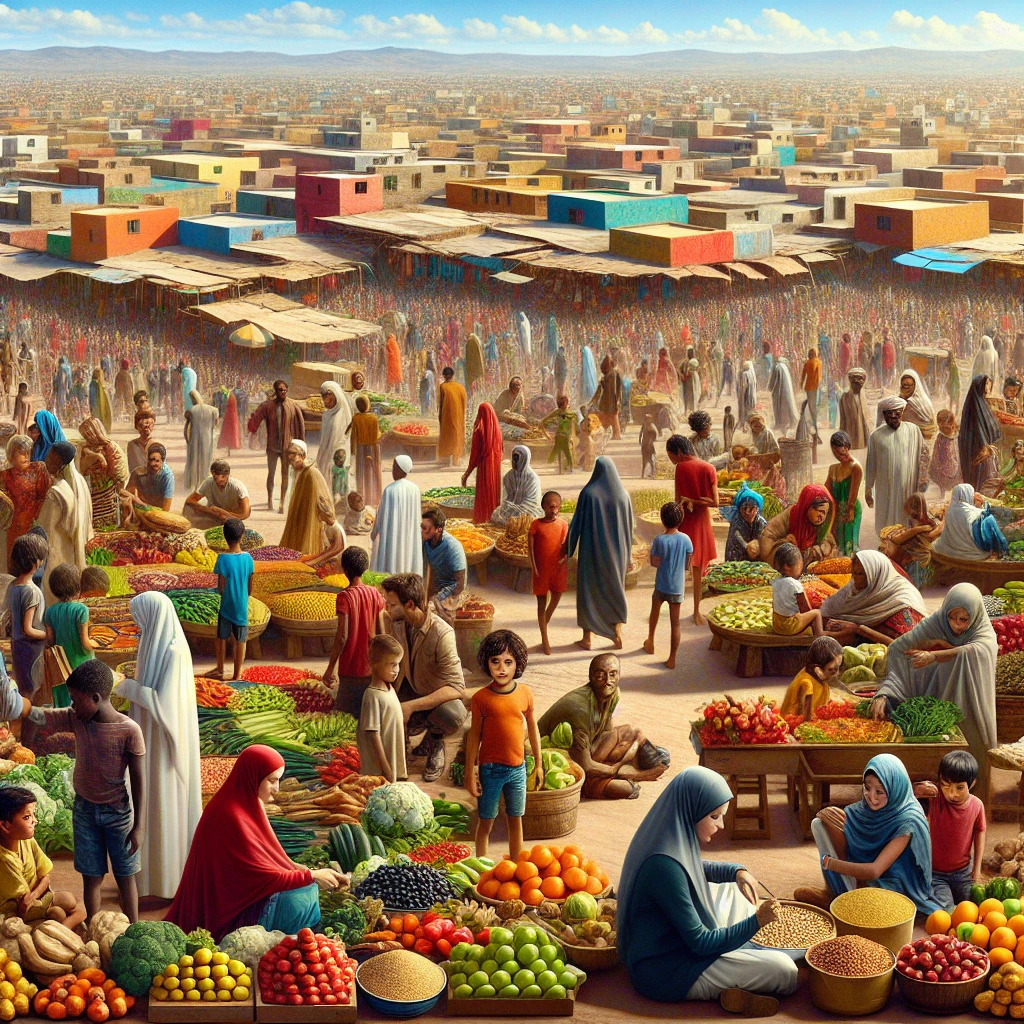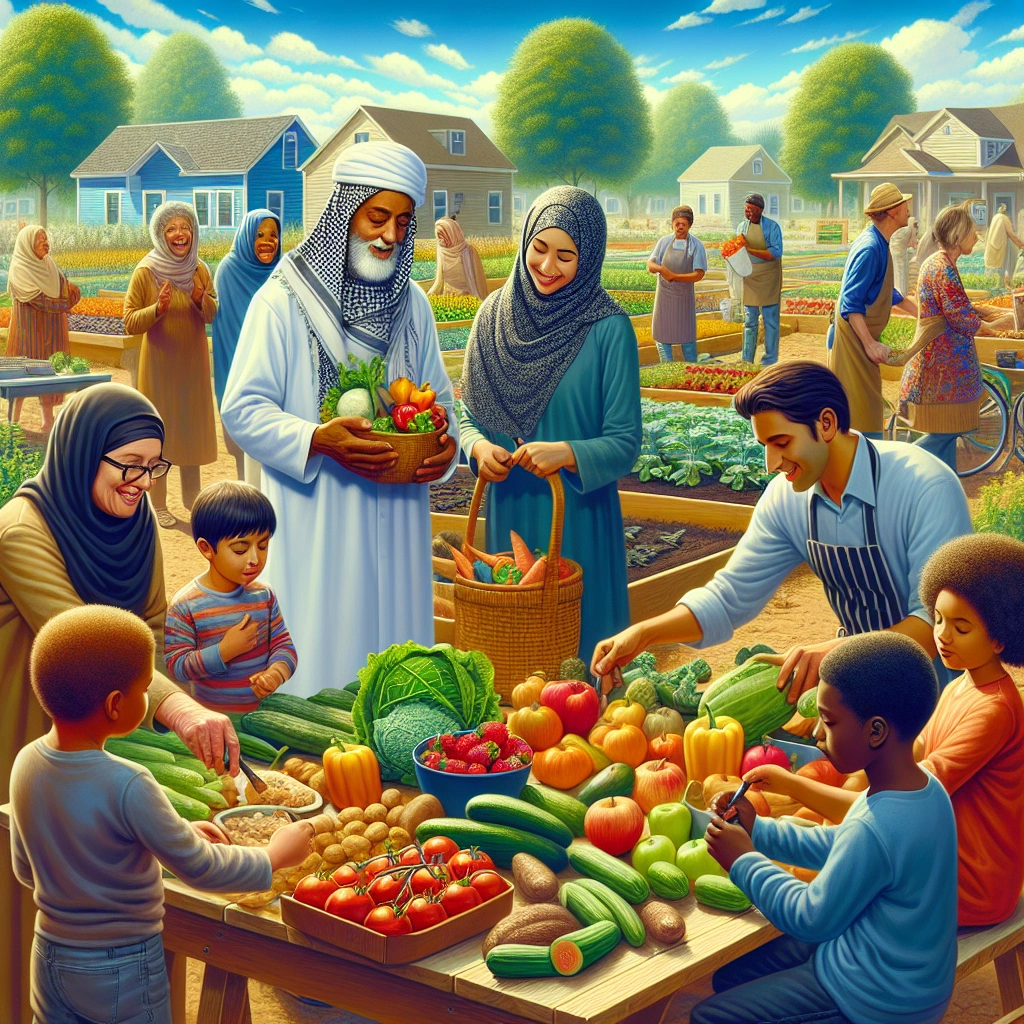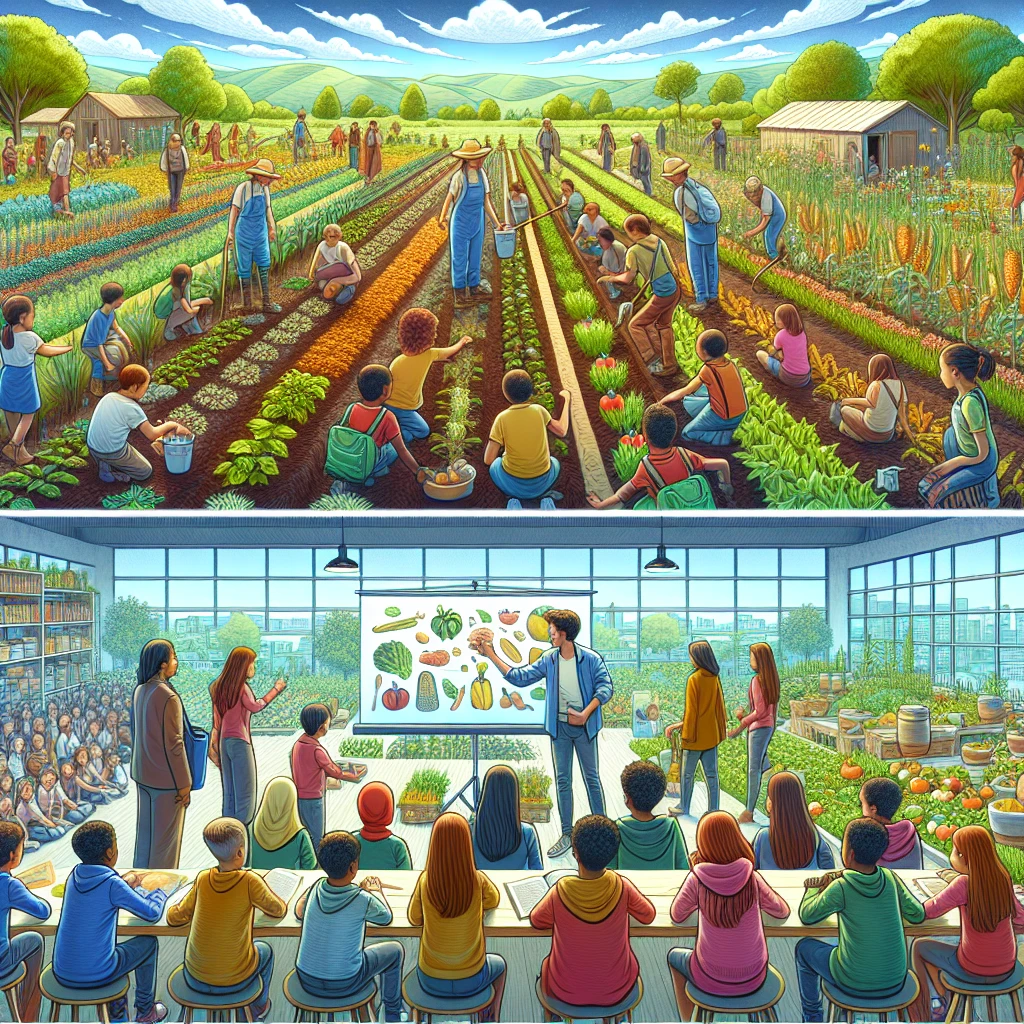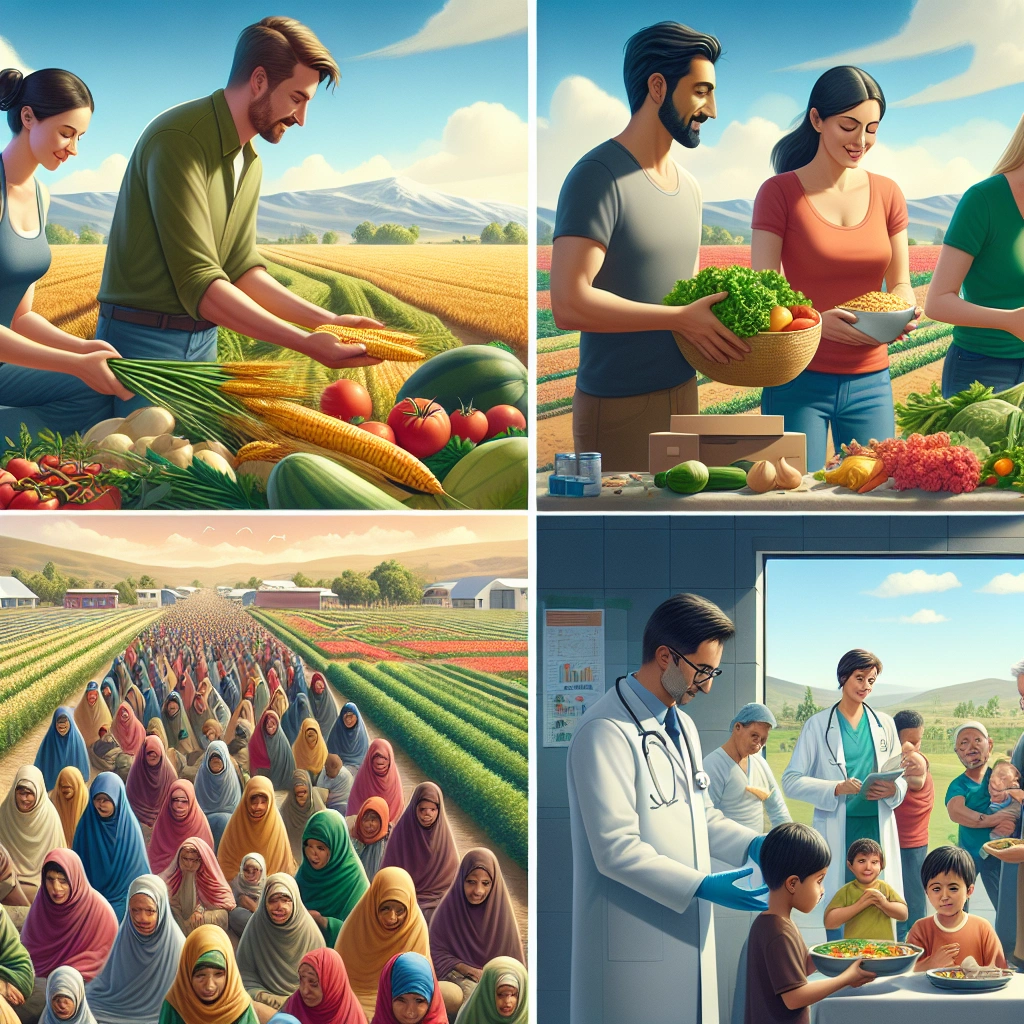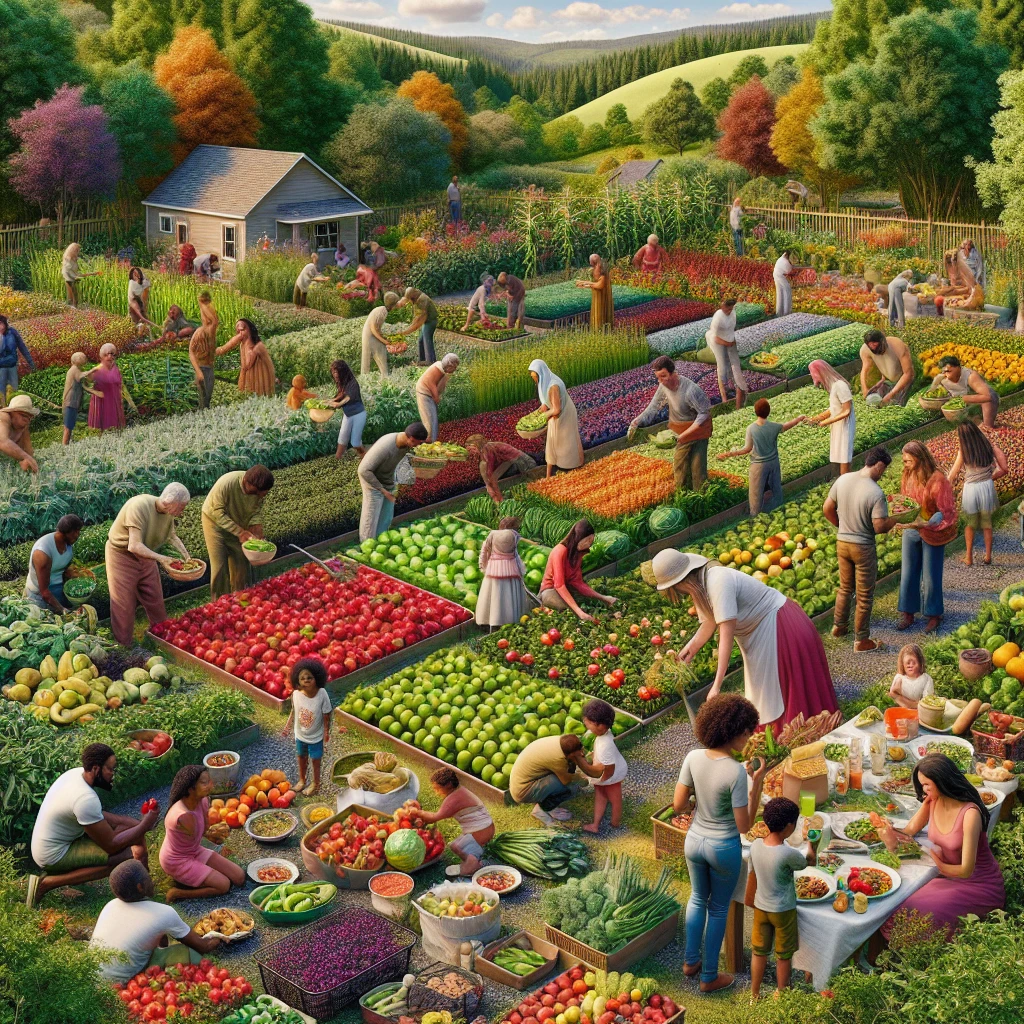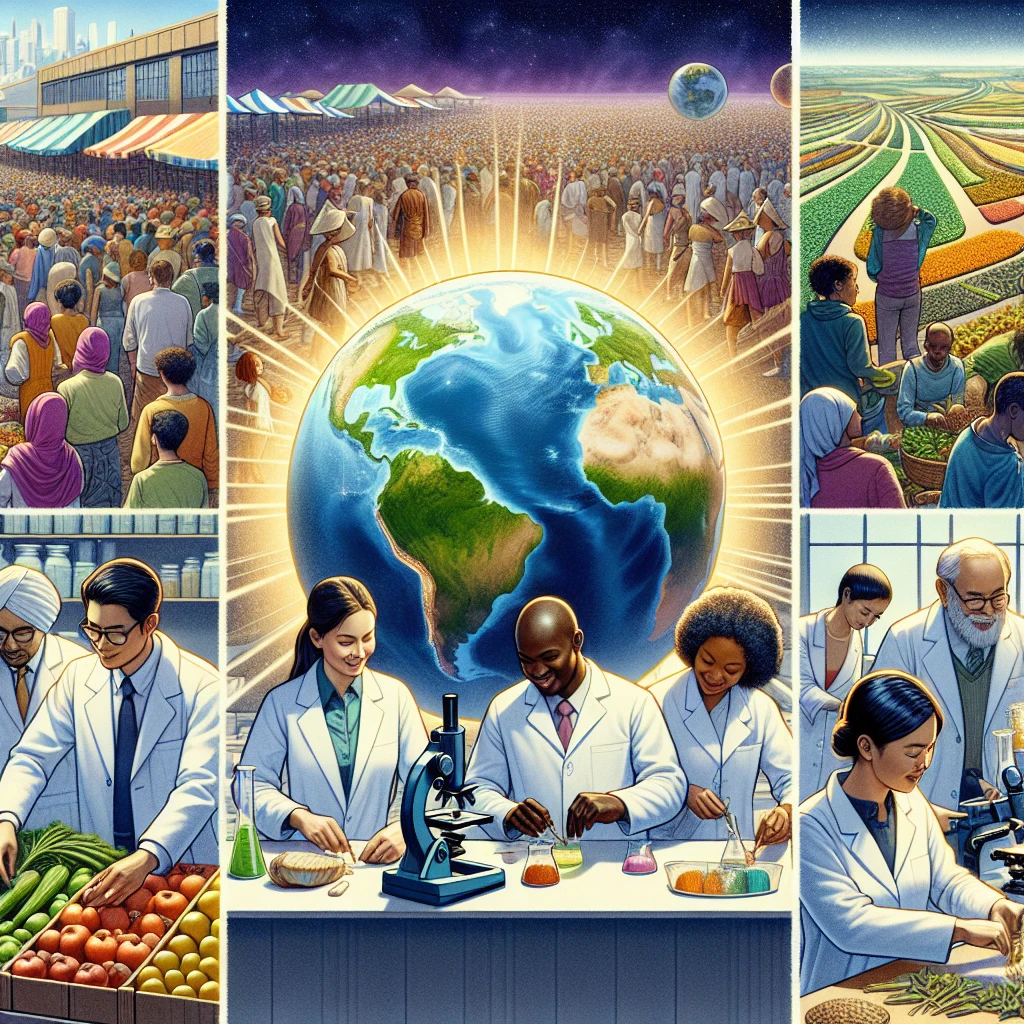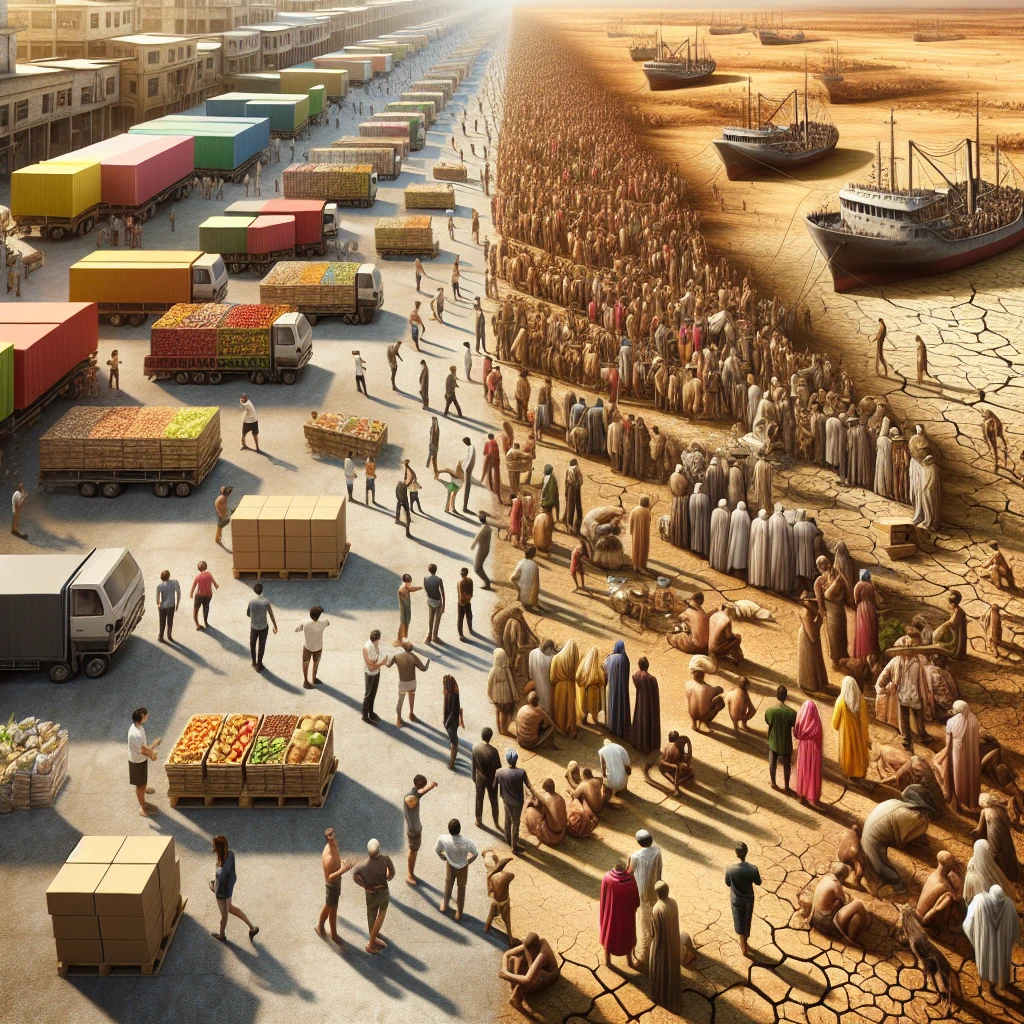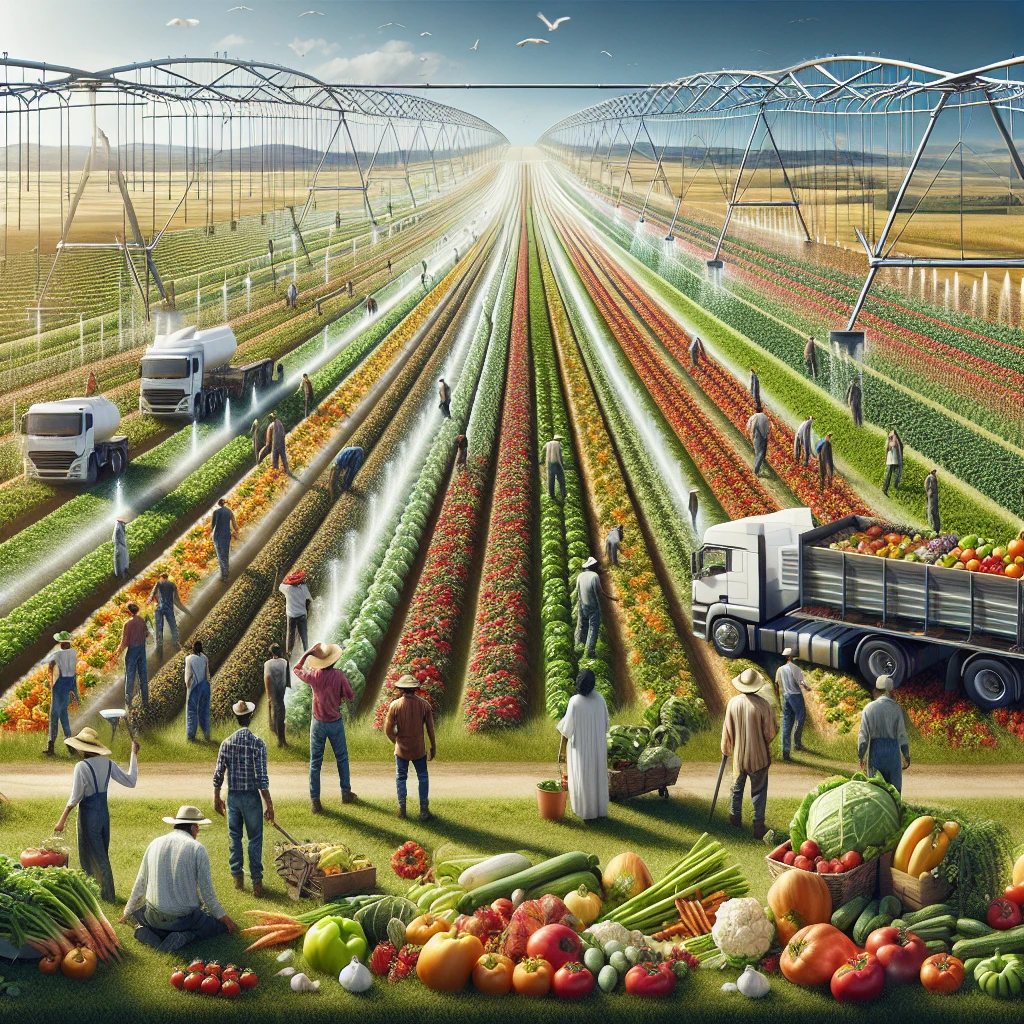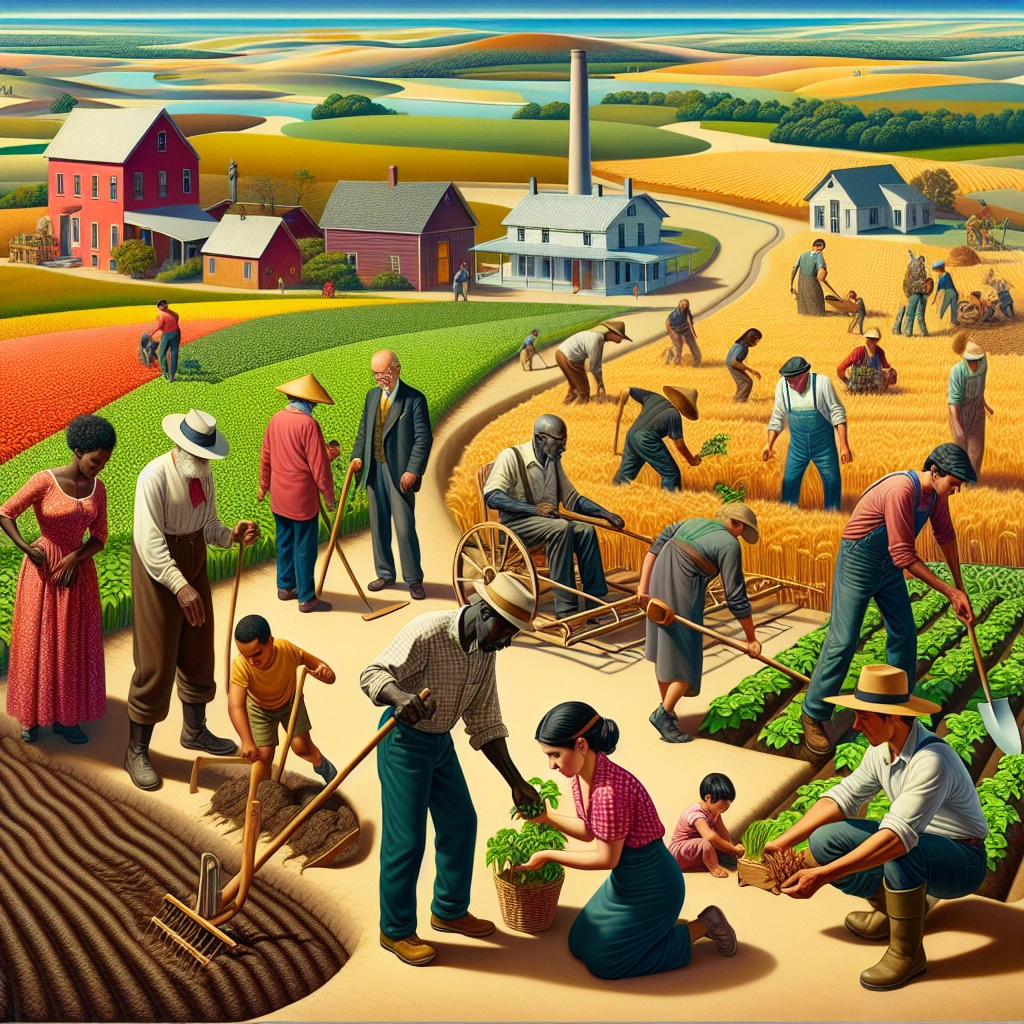

Food security is the availability of and access to resources in sufficient quantities to achieve adequate nutrition for the world population. It is a global issue because as many as 783 million people are facing chronic hunger due to conflict, economic shocks, climate extremes, and soaring fertilizer prices.
The impact of food insecurity is felt everywhere and can have wide-ranging negative effects on health, economies, and agricultural markets.
Understanding global food security issues is important because food insecurity decreases the ability of countries to develop their agricultural markets and economies. It also has the potential to lead to a global food crisis, as evidenced by the logistical problems and reduced grain exports from Ukraine and Russia.
Additionally, secure access to food is fundamental to human existence and can produce wide-ranging positive impacts, including economic growth, job creation, and improved health outcomes.
Check out this Youtube video: “Understanding global food security and nutrition” to gain a deeper understanding of why food security is a pressing global issue impacting millions of lives.
The Impact of Climate Change on Global Food Security
How climate change affects food production
Climate change is significantly affecting food production through various mechanisms such as increasing temperatures, changes in precipitation patterns, and extreme weather events. These environmental changes have adverse effects on agricultural activities, leading to reduced crop yields, soil erosion, and water scarcity, thus posing a threat to global food security.
Additionally, rising carbon dioxide levels and disruptive weather patterns make it increasingly challenging for farmers to sustain food production.
Examples of regions experiencing food insecurity due to climate change
Sub-Saharan Africa, South Asia, and Southeast Asia are among the regions experiencing severe food insecurity due to climate change. These areas are disproportionately affected by crop failures, hunger, and poverty, with farming families being particularly vulnerable.
For instance, lack of rain in regions like Ethiopia, Kenya, and Somalia has resulted in the worst drought in the last 70 years, exacerbating food insecurity. Additionally, the U. S. Southwest has been facing one of the most severe long-term droughts, further impacting food availability and affordability.
| Regions Experiencing Food Insecurity | Reasons |
|---|---|
| Sub-Saharan Africa | Severe drought and crop failures |
| South Asia | Increased temperatures and extreme weather events |
| Southeast Asia | Disproportionate impact on farming families and poverty |
Economic Factors Contributing to Global Food Insecurity
The role of poverty in food insecurity:
– Poverty has a significant impact on food insecurity, as individuals with limited financial resources struggle to afford an adequate diet.
– Lower-income households often face challenges in accessing nutritious foods, leading to higher susceptibility to food insecurity and its associated health risks.
The impact of fluctuating food prices on vulnerable populations:
– Fluctuating food prices, particularly significant increases, can exacerbate food insecurity for vulnerable populations.
– High-priced food reduces the real income of the most vulnerable households, intensifying their struggle to access adequate nutrition and leading to adverse health outcomes.
| Poverty | Fluctuating Food Prices |
|---|---|
| A significant contributor to food insecurity | Exacerbates food insecurity for vulnerable populations |
| Limits access to nutritious foods | Reduces real income of vulnerable households |
Globalization and Food Security
How globalization affects food supply chains
Globalization has significantly impacted food supply chains by increasing the fragility of these networks. With food no longer moving simply from producer to consumer, there are numerous turns along the way, making the food chains increasingly complex and vulnerable.
Additionally, globalization has led to increased availability of food, decreased poverty and hunger, increased efficiency and yields, and the sharing of technology and supplies. However, this increased complexity has also resulted in challenges such as the need for cost reduction, as food manufacturers source ingredients and labor from countries with lower production costs, and the heightened risk of issues like food safety in the supply chain.
The role of trade policies in global food security
Trade policies play a crucial role in global food security by making food more affordable and available. Open global markets allow food to move from food surplus regions to food deficit regions, stabilizing markets by reducing the risk of food scarcity in domestic markets and mitigating food price volatility in both domestic and global markets.
Trade liberalization also protects national food markets against domestic shocks by allowing more food to be imported in times of shortage and exported in periods of surplus. Moreover, international agri-food trade can help balance food deficits and surpluses across countries, improve the availability of diverse foods, and contribute to price stability, in line with the goals of the 2030 Agenda.
The Role of Technology in Ensuring Food Security
Technology plays a crucial role in revolutionizing agriculture, ensuring food security for the growing global population. Innovations such as precision agriculture, indoor vertical farming, and livestock farming technology have significantly enhanced food production and quality.
For instance, precision agriculture provides farmers with valuable insights, optimizing productivity and soil quality. Additionally, the use of robotics and IoT sensors enables real-time monitoring of produce and animal health, addressing climate challenges and enhancing sustainability across the supply chain.
When considering the mitigation of food insecurity, technology offers remarkable solutions. For example, 3-D printers are utilized to repair machinery, print food, and even create prosthetics for animals, providing a competitive advantage to farms worldwide.
Furthermore, ultraviolet (UV-C) lighting serves as an effective germicidal solution for food, contributing to enhanced food safety. Similarly, artificial intelligence-driven technologies are instrumental in increasing food security by addressing global hunger through improved agricultural practices and enhanced food production.
| Technological Innovations in Agriculture | How Technology Mitigates Food Insecurity |
|---|---|
| – Precision Agriculture | – 3-D Printers & Prosthetics for Animals |
| – Indoor Vertical Farming | – Ultraviolet (UV-C) Lighting for Improved Food Safety |
| – Livestock Farming Technology | – Artificial Intelligence for Enhanced Agricultural Practices |
The integration of advanced technologies empowers the agricultural sector to overcome challenges and ensure global food security. These innovations not only boost productivity but also contribute to addressing food insecurity through enhanced safety standards and sustainable farming practices.
Political Instability and Food Security
The impact of conflicts on food production and distribution
Political instability and conflicts have a significant impact on food production and distribution. In regions affected by conflicts, farming activities are disrupted, leading to a decrease in agricultural output.
Moreover, the distribution channels for food supplies are often disrupted, making it challenging to move food from production centers to areas in need. In addition, conflicts may result in the destruction of crucial infrastructure such as irrigation systems and storage facilities, further impairing food production and distribution.
To illustrate the impact, let’s take the example of the ongoing conflict in Yemen. The prolonged conflict has severely damaged agricultural infrastructure, leading to a significant decline in food production.
Additionally, the distribution networks have been disrupted, making it difficult for food aid to reach those in need, exacerbating the food security situation.
Examples of regions where political instability has led to food insecurity
- Yemen: The ongoing conflict in Yemen has resulted in severe food insecurity due to the disruption of agricultural activities and distribution networks.
- South Sudan: Political instability and conflict have led to food insecurity, with displacement and destruction of agricultural infrastructure significantly impacting food production and distribution.
| Region | Impact of Political Instability |
|---|---|
| Yemen | Disrupted agricultural activities and distribution networks, leading to severe food insecurity. |
| South Sudan | Significant impact on food production and distribution due to displacement and destruction of agricultural infrastructure. |
Political instability and conflicts have a detrimental effect on food security, disrupting both production and distribution, and leading to widespread food insecurity in affected regions.
The Social Aspect of Food Insecurity
How food insecurity affects marginalized communities
Food insecurity disproportionately affects marginalized communities, exacerbating existing health disparities. For instance, Black individuals, particularly women, experience higher rates of obesity and long-term illnesses due to limited access to nutritious foods.
This further perpetuates health challenges and deepens the underlying societal inequities faced by these communities.
Strategies for addressing social inequalities related to food security
To address social inequalities linked to food security, there is a crucial need to increase SNAP (Supplemental Nutrition Assistance Program) utilization among multiply marginalized women. Additionally, it is imperative to implement justice-informed principles, such as applying rights-based approaches to land and resources, building inclusive institutions, and developing inclusive value chains to improve representation within the food system.
By reducing inequalities and enhancing access to nutritious food, a positive impact can be made in combatting food insecurity within marginalized communities.
The Connection Between Food Security and Health
The link between malnutrition and food insecurity
Food insecurity contributes significantly to malnutrition, leading to a range of health issues. Malnourished individuals, especially children, exhibit physical symptoms such as stunted growth, weakened immune systems, and psychiatric symptoms like anxiety and mood changes.
Reduced dietary intake, absorption issues, and increased energy losses are common causes of malnutrition. Additionally, food insecurity can lead to diminished nutritional quality due to lower intake of essential nutrients and a higher consumption of low-nutrient-dense foods, resulting in various health problems.
The importance of access to nutritious food for overall health
Access to nutritious food is vital for maintaining overall health. Food insecurity can lead to limited access to essential nutrients such as protein, vitamins, and minerals, while increasing the intake of high-energy, low-nutrient-dense foods.
This lack of access contributes to a higher risk of chronic health conditions like heart disease, type 2 diabetes, obesity, and mental health disorders. Moreover, food insecurity has been linked to an increased risk of malnutrition-related issues such as stunting in children and micronutrient deficiencies in adults.
Ensuring access to healthy, nutritious food is crucial for preventing a multitude of health problems and promoting overall well-being.
The Global Perspective on Food Security
According to the World Food Program, 45% of the global population currently faces food insecurity, with approximately 2.4 billion individuals lacking constant access to food. This dire situation has been exacerbated by factors such as inflation and the COVID-19 pandemic, leading to a staggering rise in global hunger numbers, reaching as high as 828 million individuals.
These alarming statistics highlight the widespread severity of food insecurity on a global scale.
Statistics on global food insecurity
In 2022, the World Bank reported that over 828 million people worldwide were affected by hunger, representing an increase of 46 million individuals since 2020. High food price inflation has been experienced in a significant percentage of countries across different income levels, further contributing to the escalating crisis. The failure to achieve the Sustainable Development Goal 2, Zero Hunger, further underscores the magnitude of the challenge in combating global food insecurity.
The United Nations’ efforts to address food security on a global scale
The United Nations and its specialized agencies, such as the Food and Agriculture Organization (FAO) and the World Food Programme (WFP), have been at the forefront of addressing food security globally. These organizations have set ambitious objectives to eliminate hunger, food insecurity, and malnutrition, emphasizing the critical need to promote sustainable agriculture and nutrition.
The World Bank has also allocated substantial funding to combat food insecurity in 90 countries, with initiatives aimed at benefiting millions of individuals. As the severity of global food insecurity continues to mount, these concerted efforts by international bodies remain pivotal in tackling this urgent crisis.
| Key Effort | Description |
|---|---|
| FAO’s Strategic Objective | To help eliminate hunger, food insecurity, and malnutrition |
| WFP’s Initiatives | Working to tackle food insecurity in 90 countries with substantial funding |
| World Bank’s Priorities | Investing in initiatives such as the West Africa Food Systems Resilience Program |
The prevailing statistics on global food insecurity underscore the urgency and magnitude of the issue, necessitating concerted action and collaboration at a global level to alleviate this crisis and ensure access to adequate nutrition for all individuals.
Addressing Food Security Through Sustainable Agriculture
The role of sustainable farming practices in ensuring food security
Sustainable farming practices play a crucial role in ensuring food security by promoting long-term agricultural productivity, reducing environmental degradation, and enhancing resilience to climate change. Practices like crop rotation, agroforestry, and integrated pest management help maintain soil fertility, conserve water, and minimize the use of synthetic inputs, ultimately contributing to a stable and reliable food supply.
By preserving natural resources and promoting biodiversity, sustainable farming practices create a foundation for consistent food production, thus mitigating the risks of food shortages and malnutrition.
Examples of sustainable agriculture initiatives around the world
-
Regenerative Agriculture Organizations: Organizations like “The Regenerative Agriculture Foundation” are actively promoting healthy soil, ecosystems, and communities globally, emphasizing regenerative practices to ensure long-term food security and environmental sustainability.
-
Financial Commitments: Recently, 45 countries pledged over $4 billion to support sustainable agriculture, indicating a growing global effort to invest in initiatives that prioritize sustainable farming practices. Despite challenges, such commitments signify a shift towards prioritizing long-term food security over short-term gains.
-
Innovations and Adoption: The widespread adoption of sustainable agricultural practices, such as no-till farming and crop rotation, has demonstrated positive impacts on reducing greenhouse gas emissions and improving soil health. These initiatives contribute to increased food production and protection of the environment, showcasing the effectiveness of sustainable agriculture in addressing global food security challenges.
The Impact of Food Waste on Global Food Security
Statistics on food waste
An estimated 17 percent of total global food production is wasted annually, amounting to around 1.3 billion tons of food. This waste contributes to 8-10% of global greenhouse gas emissions, impacting the environment, society, and economy.
The Food Waste Index Report 2021 indicated that approximately 17% of global food production is wasted, with 61% of waste coming from households, 26% from food service, and 13% from retail.
How reducing food waste can contribute to global food security
By reducing food loss and waste, we can mitigate planet-warming emissions, improve food security, combat climate change, save money, and enhance productivity and economic growth. Additionally, preventing food waste can increase food security, foster productivity, and resource and energy conservation.
Reducing food waste means more food for all, fewer greenhouse gas emissions, less pressure on the environment, enhanced economic growth, and increased resilience.
The Importance of Education in Addressing Food Insecurity
Educating communities about sustainable food practices is crucial in addressing food security issues. By teaching individuals about agriculture, nutrition, and hygiene, we empower them to make informed decisions that contribute to greater food security and sustainable living.
How education can empower communities to address food security issues
Education empowers communities by providing the knowledge and skills needed to grow their own food, make informed dietary choices, and adopt sustainable farming practices. This leads to increased food self-sufficiency, reduced dependence on external food sources, and a more resilient approach to addressing food insecurity.
Examples of educational programs focused on sustainable food practices
Program
Focus
UC CalFresh Nutrition Education Program
Food self-sufficiency, food budgeting, food preparation skills, food safety
Ghana School Feeding Programme
Empowering communities to produce their own food
Sustainability Recommendations and Practices in School
Promotion of sustainable food consumption and procurement
Humanitarian Efforts to Address Food Security
The role of humanitarian organizations in providing food aid
Humanitarian organizations play a crucial role in providing food aid to vulnerable populations around the world, especially during food security emergencies. These organizations work tirelessly to ensure that food reaches those in need, whether it’s through distributing food supplies, providing cash transfers for food purchases, or issuing food vouchers.
They also collaborate with local and regional partners to procure and distribute food, contributing to the overall effort of addressing food insecurity on a global scale.
Examples of successful humanitarian food security initiatives
One notable example of a successful humanitarian food security initiative is the Emergency Food Security Program (EFSP), which provides grants to aid organizations to respond to food security emergencies. Through the EFSP, these organizations can purchase food locally or regionally, or distribute cash transfers and food vouchers to those in need.
Additionally, the World Food Programme (WFP) stands out as a leading humanitarian organization that delivers food assistance during emergencies and collaborates with communities to enhance nutrition and build resilience. These initiatives serve as compelling examples of the impactful work being done to address food security issues globally.
The Intersection of Food Security and Gender Equality
The impact of gender inequality on food access
The impact of gender inequality on food access is profound and multifaceted. Women and girls often face disproportionate challenges in accessing nutritious food due to social, economic, and cultural barriers.
Studies have shown that women make up a significant portion of the agricultural labor force in developing countries, yet they encounter obstacles in owning land and accessing essential resources. This imbalance results in a lack of control over food production and decision-making, leading to limited food security for women and their families.
Furthermore, women are more vulnerable to food insecurity across various dimensions, including availability, accessibility, utilization, and stability. These disparities perpetuate a cycle of inequality and hinder the overall well-being of communities.
Strategies for promoting gender equality in relation to food security
Implementing strategies to promote gender equality in relation to food security is crucial for addressing these disparities. It is essential to design gender-responsive interventions that ensure equal access to food, productive resources, education, and decision-making for women and men.
Empowering women by granting them ownership of resources and promoting their active involvement in agricultural activities can significantly enhance food security. Furthermore, challenging traditional gender norms and fostering supportive environments that recognize the contributions of women in food systems is paramount.
By prioritizing women’s empowerment and addressing structural inequalities, we can build more resilient and sustainable food systems that benefit everyone.
| Gender Inequality Impact on Food Access | Strategies for Promoting Gender Equality in Relation to Food Security |
|---|---|
| Women face challenges in accessing nutritious food due to social, economic, and cultural barriers. | Implement gender-responsive interventions to ensure equal access to food and productive resources for women and men. |
| Women experience obstacles in owning land and accessing essential resources, leading to limited control over food production and decision-making. | Empower women by granting them ownership of resources and promoting their active involvement in agricultural activities. |
| Women are more vulnerable to food insecurity across multiple dimensions, including availability, accessibility, utilization, and stability. | Challenge traditional gender norms and foster supportive environments that recognize the contributions of women in food systems. |
Addressing gender inequality in food access and promoting gender equality in relation to food security are essential steps toward achieving sustainable and inclusive food systems worldwide. By recognizing the unique challenges faced by women and implementing tailored interventions, we can pave the way for a more equitable and nourished future for all.
Innovation in Addressing Food Security
Examples of innovative approaches to addressing food security issues
An innovative approach to addressing food security involves the use of regenerative agriculture methods. These methods focus on improving soil health, which in turn increases crop yield and resilience to climate change.
Vertical farming is another innovative approach that maximizes space and resources for efficient food production in urban areas.
The potential impact of technological and social innovation on global food security
Technological innovation, such as precision agriculture and data-driven solutions, can play a significant role in enhancing global food security. These innovations enable informed decision-making and optimize resource utilization.
Social innovation, on the other hand, can address poverty and food insecurity by improving the agriculture value chain and promoting economic and social feasibility in food systems.
| Innovations | Impact on Food Security |
|---|---|
| Regenerative agriculture | Increases crop yield and resilience to climate change |
| Vertical farming | Efficient food production in urban areas |
This dynamic integration of technological and social innovations holds the potential to revolutionize global food security and mitigate the challenges posed by food insecurity.
The Future of Global Food Security
Predictions for future challenges related to food security
- A potential future challenge related to food security is climate change, leading to extreme weather conditions that can disrupt food production and supply chains, ultimately impacting global food availability.
- Another prediction is the increasing population, which will demand a higher food supply, potentially straining resources and creating food scarcity in many regions.
Strategies for building a more food-secure future
- Implementing sustainable agricultural practices and investing in technology to enhance crop yield and quality can contribute to a more food-secure future.
- Strengthening international collaborations and trade agreements to ensure equitable distribution of food resources across different regions is critical in bolstering global food security.
| Prediction | Strategies |
|---|---|
| Climate change affecting food production | Sustainable agricultural practices and technology |
| Growing population leading to higher demand | International collaborations and equitable trade |
Recommended Amazon Products for Improving Global Food Security
Here’s a curated list of products that can help you contribute to improving global food security with ease. These recommendations are based on their functionality, price, and positive customer reviews.
Organic Non-GMO Vegetable Seeds
Looking to grow your own produce to contribute to local food security efforts? These organic non-GMO vegetable seeds are the perfect choice. With a variety of vegetable options, you can start your own sustainable garden and help address food insecurity in your community. Check it out on Amazon.


Solar-Powered Lanterns
In regions experiencing food insecurity due to climate change, access to reliable lighting is crucial. Solar-powered lanterns provide a sustainable and cost-effective lighting solution for farmers and communities in need. By supporting sustainable energy solutions, you can make a positive impact on food security. Check it out on Amazon.


Portable Water Filtration System
Access to clean water is essential for agricultural production and community well-being. A portable water filtration system allows individuals and organizations to purify water from various sources, ensuring that waterborne diseases are mitigated, and farming efforts can continue unhindered. This product is a valuable resource in addressing the impact of climate change on global food security. Check it out on Amazon.


Community-Sized Compost Bin
Reducing food waste is a critical aspect of improving food security. A community-sized compost bin provides an environmentally friendly solution for diverting organic waste from landfills. By turning food scraps into nutrient-rich compost, communities can enhance soil fertility, support local agriculture, and reduce the overall environmental impact of wasted food. Check it out on Amazon.


Efficient Rainwater Harvesting System
In regions vulnerable to water scarcity, an efficient rainwater harvesting system can make a significant difference in agricultural sustainability. By capturing and storing rainwater, farmers can ensure a consistent water supply for their crops, mitigating the impact of drought and climate change. This product is a practical investment in addressing the impact of climate change on global food security. Check it out on Amazon.


Top Recommended Product for Improving Global Food Security
If you’re looking for the best solution to contribute to improving global food security, we highly recommend the Portable Water Filtration System. This product addresses the fundamental need for clean water, essential for agricultural production and community well-being. Its portability and effectiveness make it a valuable resource in addressing the impact of climate change on global food security.
Pros and Cons of Recommended Products
Here’s a comparison of the recommended products to help you make an informed decision:
| Product | Pros | Cons |
|---|---|---|
| Organic Non-GMO Vegetable Seeds | – Diverse vegetable options- Organic and non-GMO- Supports sustainable gardening | – Requires gardening knowledge and space |
| Solar-Powered Lanterns | – Sustainable energy source- Cost-effective lighting solution- Environmentally friendly | – Dependent on sunlight availability |
| Portable Water Filtration System | – Efficient water purification- Portable and versatile- Supports agricultural production | – May require replacement parts or filters over time |
| Community-Sized Compost Bin | – Reduces food waste- Creates nutrient-rich compost- Supports local agriculture | – Requires community participation and management |
| Efficient Rainwater Harvesting System | – Mitigates water scarcity- Consistent water supply for crops- Sustainable water management | – Initial setup and installation costs |
Conclusion
Food security is a global issue because it is essential for the survival and well-being of all individuals around the world. Without adequate access to nutritious and safe food, people are at risk of malnutrition, hunger, and even death, leading to a significant impact on public health and economic growth.
Furthermore, the global issue of food security is exacerbated by factors such as climate change, natural disasters, conflicts, and economic instability, which can disrupt food production, distribution, and access. These challenges can lead to food shortages, price volatility, and even food insecurity in many parts of the world, affecting the livelihoods and stability of communities and nations.
In addition, food security is a global issue because it is interconnected with other global challenges, such as environmental sustainability, poverty, and social inequality. Addressing food security requires collaborative efforts and sustainable solutions to ensure that everyone has access to safe and nutritious food, ultimately contributing to a more stable and prosperous global society.

